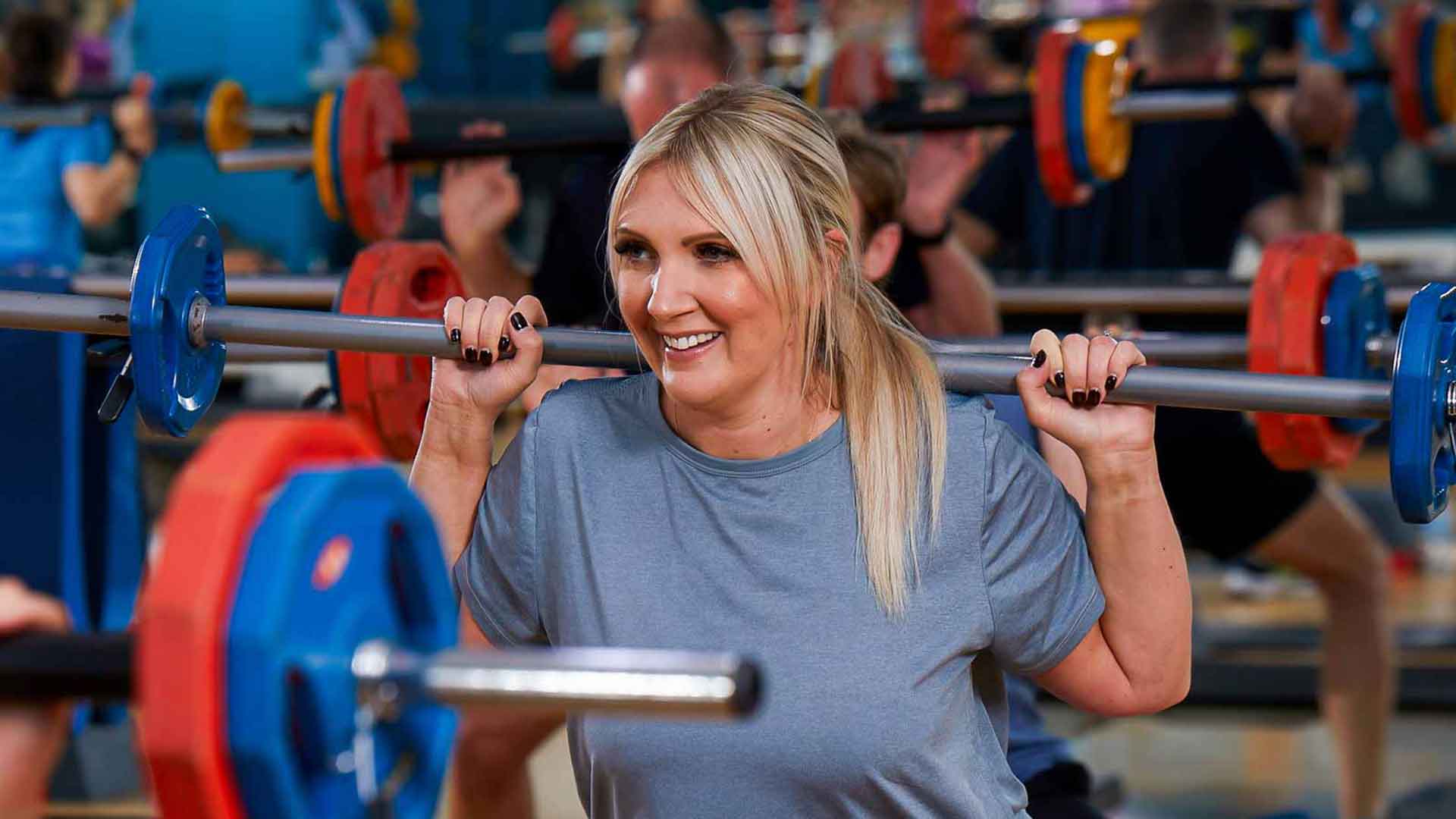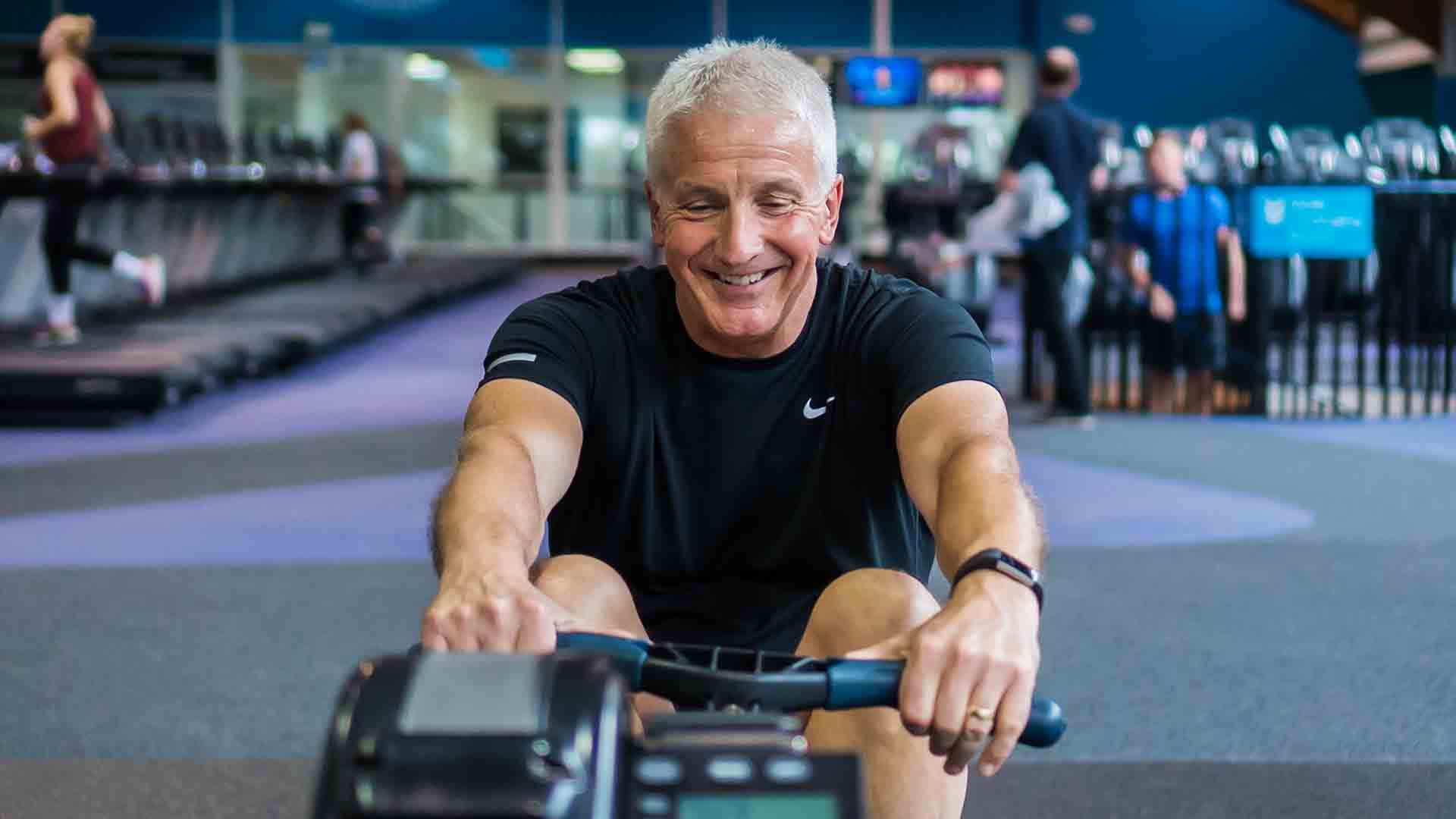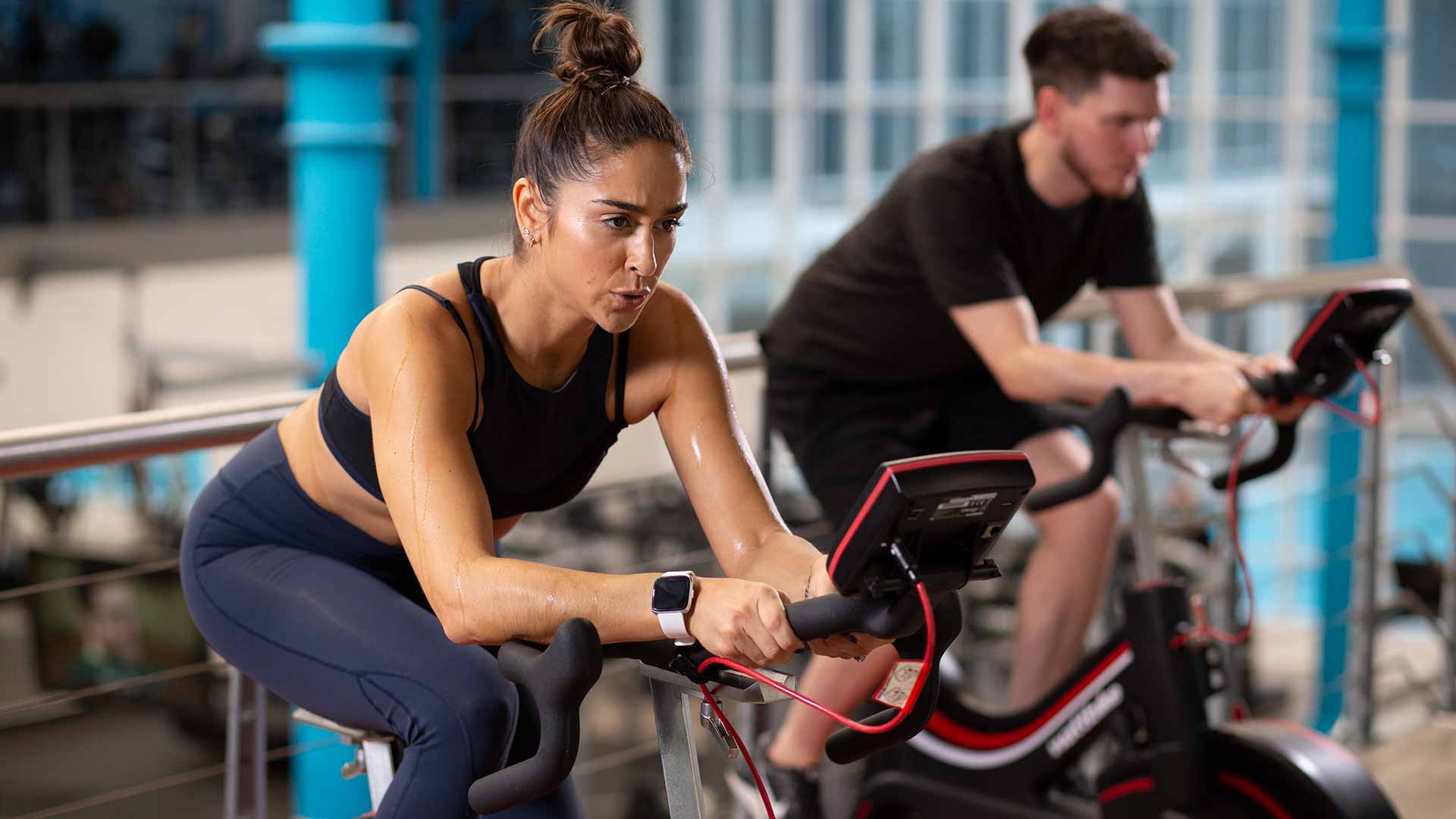- 24/10/2021
- Fitness Guides & Advice
Going through Menopause and perimenopause is part of the natural process of aging. Triggered by a change on hormone levels – especially estrogen and progesterone – the changes in womens’ bodies can cause a variety of symptoms including hot flushes, night sweats, tiredness, and irregular menstruation. Although it can differ from person to person, another side effect of this hormone change can also include weight gain.
So why do we gain more weight during perimenopause? As our natural levels of estrogen drop, the body will adapt to increase fat stores. Fat produces a form of estrogen called estrone, which combats the natural decline in estrogen. To help achieve this, our metabolic rate drops during menopause meaning we burn less calories during the day. This is coupled with an increase in hunger. We’re primed to move less and eat more, which unfortunately can lead to gaining more weight and a change in body shape.
So, what can you do to combat this weight gain safely during perimenopause? Here are our 5 tips to get you started
- Lift weights: As we age, we naturally lose muscle which further affects your appearance. If you aren’t doing so already, start now. Exercises that target many muscles at once such as squats, lunges and deadlifts may give you the most bang for your buck
- Eat protein: Protein is the building block for muscles, so increasing the amount of protein you eat will support your weight training. Protein also helps in controlling hunger too, so be sure to add in lean meats like chicken, fish, eggs, pulses and soy into your diet.
- Daily activity: It's not all about going to the gym. A large proportion of the calories you burn over the whole day is from activities like walking, not through exercise. Trying to be as active as possible, by using stairs rather than lifts, having walk and talk meetings at work rather than sitting down, parking slightly further away from the shops or office – all will contribute to the calorie burn needed.
- Find time to relax: To help reduce cortisol (associated with an increase in fat storage around our middle), find time to engage in stress-relieving activities. Whether that be through meditation, Yoga, mindful breathing, even relaxing in a hot bath - lowering cortisol will reduce water retention and can help reduce belly fat too.
- Eat healthy: It sounds like an obvious one, but basing your diet around quality protein sources, fruit, vegetables and healthy fats like nuts, seeds, and avocados are the best way to achieve a calorie deficit for most people. Food that is minimally processed tends to be more filling, meaning you feel less hungry after the meal and be less tempted to snack. This doesn’t mean that processed foods are off the table totally, aim for an 80/20 split to start with and then adjust accordingly.
The tips to lose weight during this time don’t differ too much from typical advice, however knowing what is actually happening inside our bodies can often help support us through this unknown journey. It may require a little more focus and consistency to see results but remember to listen to your body and remember that this is a natural process. Don’t push yourself too hard.





